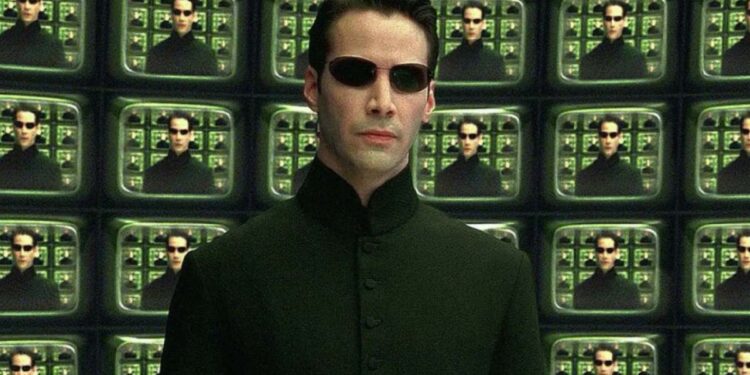In one of the most famous scenes in cinema, the character of Morpheus invites Neo, the protagonist of Matrix (1999) to take a red or blue pill to exit the simulation in which he lives, fostered by machines.
Now, Melvin M. Vopson, a professor at the University of Portsmouth, argues that this idea that we live in a simulation (an old philosophical hypothesis) is real, and for this he relies on what he has baptized as a new discipline: infodynamics, as opposed to thermodynamics.
As we say, this idea, which sounds like science fiction, has been explored in depth by scientists and philosophers. But where does this new theory come from and how could we even begin to prove something so unimaginable?
The theory of universal simulation
Vopson has proposed this idea in an article on The Conversation portal, where he suggests that our entire universe, with its galaxies, planets, and forms of life, is nothing more than an extremely detailed computerized simulation.
According to him, the physical laws that we believe are fundamental would be nothing more than algorithms designed by a simulator. Our experiences, our lives, and perhaps even our consciousness, would be the product of complex computational processes. The idea finds its roots in Plato’s myth of The Cave, evolving to this day driven by advances in digital and computational technology.
Within the scientific community, the concept of a simulated universe has aroused both fascination and skepticism. Some scientists suggest that if our reality is a simulation, there could be flaws or patterns within the fabric of the universe that betray its simulated nature.
However, the search for such anomalies remains a challenge. Our understanding of the laws of physics is still evolving. “Ultimately, we lack a definitive framework to distinguish between simulated and non-simulated reality,” he argues.
A new approach through infodynamics
Vopson proposes a new physical law based on information theory, which could offer clues to the simulated nature of our reality.
Vopson introduces what he calls “Second Law of Infodynamics”, which states that the “information entropy” — or the average amount of information transmitted in an event — must always decrease towards a minimum value in equilibrium, contrary to how it does in thermodynamics.
According to Vopson, “when a hot cup of coffee is left on the table, over time it reaches equilibrium, having the same temperature as the environment. At this point, the system’s entropy is at its maximum, and its energy is minimal”.
Simulated universe?
If our reality were truly a simulation, we would observe optimizations and data compressions everywhere, from biological systems to the mathematical structures of the universe, proposes Vopson.
These observations coincide with the idea of a simulated universe designed to minimize the computational power required for its operation.
Vopson’s law of infodynamics also suggests that genetic mutations, traditionally considered random events according to Darwin’s disputed theory of evolution, actually occur according to this law, in such a way that the information entropy of the genome is always minimized. “My approach indicates that the second law of infodynamics seems to be a cosmological necessity, universally applicable with immense scientific ramifications,” he points out.
Having exposed his ideas, it is now up to the scientific community to rebut them, ignore them, or include them with greater conclusions. Time will tell if Vopson’s article has an eccentric component or if it brings this theory, which has gone through periods of greater and lesser attention, back to the forefront.


